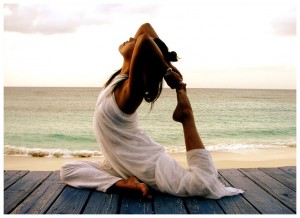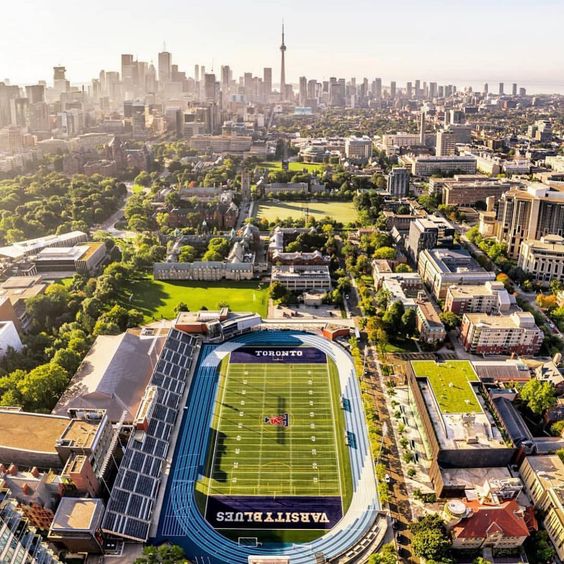I recently made a very difficult decision to take a medical leave of absence from my PhD studies at UBC. In hindsight, this is probably a decision that I should have came to before now, but being the driven overachiever type, its hard to accept that you won’t succeed at something even when you try your very hardest.
 For the past 10 months I have not been successful at productively pursuing my degree OR getting my neck better. Yet, I kept trying to hang in there and tough it out. I wasn’t hardly training, was spending so much time on treatment and rehab, losing entire days to pain or medication mishaps and stressing so much about not being able to get work done toward my degree.
For the past 10 months I have not been successful at productively pursuing my degree OR getting my neck better. Yet, I kept trying to hang in there and tough it out. I wasn’t hardly training, was spending so much time on treatment and rehab, losing entire days to pain or medication mishaps and stressing so much about not being able to get work done toward my degree.
It finally took a breakdown on one particularly difficult day to force me to make a change. I figured that my options were: 1) cut down on the treatment and rehab appointments and dedicated time I was spending to try to heal my neck, so that I would have more time to put toward my studies or 2) take a medical leave of absence from my studies to focus 100% on healing my neck so that I could then get back to my normal life of training and studying.
#1 was not a feasible option, because I would not be able to be myself again until I could get back to training and being physically able to sit at a desk for long periods of time without being distracted by pain and sedative prescription drugs. The day that I had a breakdown, I also had a doctor’s appointment and we discussed a possible LOA. My doctor explained that with the levels of stress I was experiencing from trying to do school and manage the commuting and rushing to and from all my appointments for neck stuff AND not being able to do my usual stress reliever (training), I likely had constantly high levels of cortisol running through my body. He said that the body cannot heal itself in this state. Sure enough, as a testament to the truth of this statement the day after my really stressful day, I had a massive flare-up in my trigger points and was incapacitated by pain all day. This experience helped to solidify my decision to take the LOA.
My PhD supervisors were very supportive of my decision. As was my boyfriend, parents, friends etc. This really helped me to feel better about the decision.
Its been a month since I’ve made the decision and I’ve started to adjust to my new “job” and main priority of healing my neck. I had heard from several other people who have had similar injuries that yoga had been the most helpful modality. I definitely did not have time to fit it in while I was still in school, so one of the first things I did was go buy an unlimited membership to Yyoga. I’ve been trying to go 3-4 times a week. I’ve had good classes where my neck actually feels better afterward and bad classes where I am in a lot of pain and can’t do many of the poses. I’m slowly learning which types of classes, which instructors and what timing of the day works best for me. Two of the Yyoga locations I go to have an infrared sauna, which is thought to be healing, so I’ll usually do that after class for a while.

Let me tell you, being a relaxed yogi is time consuming! You have to arrive early before class to get a spot, the class lasts 1:15-1:30, then change and sit in the sauna for 20-30 minutes, then shower, change and relax with a Happiness tea in the lounge afterwards. Round trip, it can be easily three or more hours. I don’t understand how normal people have time to do this on a regular basis!

Another thing I’m trying to help with stress relief and healing is meditation. I am reading a “Learn to Meditate” book (by David Fontana) and the claims of what meditation can do for you are really appealing and the experiences sound exactly like what I need in my current state. I’ve had this injury for 10 months now and I can’t help but stress about when its going to get better so I can train and do school and have a normal life again. One of the most important teachings of meditation is mindfulness, which means putting the mind fully into the present.
In another meditation book I’m “reading” by audiobook (better for my neck than actually reading a book), called Full Catastrophe Living, the author Jon Kabat-Zinn, says that we waste so much time and energy thinking about the past and worrying about the future, and this only leads to more stress.

“The only way of influencing the future is to own the present.” (Jon, Kabat-Zinn, Full Catastrophe Living)
I’ll expand more on some of these concepts in future posts.
Other than yoga and meditation, I am continuing to do my strength training at the gym as usual, only now without being stressed about time, and doing some minimal low intensity training with my new training group, the new Triathlon Canada Regional Training Centre in Vancouver. My coach, Alan Carlsson was named the director of this RTC and it will be my new training group. I am sad to be leaving Leading Edge Triathlon Club, which I’ve been a part of for 2.5 years now, but the RTC seems like it will be a very positive and nurturing environment for high performance triathlon junkies like myself. My treatment and rehab appointments currently consist of 2 massages, 1 double chiropractor appointment, 1 physio appointment, 2 pilates sessions per week and a doctor’s appointment every couple of weeks with analgesic trigger point injections. I’m getting a kinesiotape job on my scapulae twice a week from my physio and chiropractor to help engage the correct muscles and I also just borrowed a muscle stimulation machine that I will start using while I am lifting weights. So I haven’t had too much trouble keeping busy so far!
“We are all subject to old age, illness, and death. The real question, and the real adventure, is how do we live our lives while we have the chance? And how do we work with what comes our way in ways that are healing, that nourish us deeply, and that make the use of the full spectrum of our experiences, the good, the bad, and the ugly…” (Jon Kabet-Zinn, Full Catastrophe Living).
This new life of working fully and intently on the injury that has changed my life will produce many new adventures, and I hope to update my blog more regularly to share some of my experiences in reducing stress, promoting healing, my slow return back to high performance sport (and education!) and whatever other interesting information I find along the way.
Namaste.

Amy, great to get the full update finally and hear the positive progress. Sounds like tough decisions, but if we could all discover a bit of yoga and mindfulness and Jon Kabat Zinn at some point, we’d be better off I think. Keep doin’ it…
Amy
You made the right decision. Take good care do yourself!!
NancyK
My daily practice had sppiled, as had my commitment to yoga. I don’t know how that happened, I certainly didn’t intend to lose track of either practice. Tonight when I stopped to meditate for 3 minutes I was flat out exhausted and bleery eyed from spending my evening staring at the lap top focused on work stuff. My body was just one tense muscle on top of the next. I have got to remember to stop during my work day and make the time for a three minute meditation. Thanks for the reminder! If I feel this good after a three minute respite I’m motivated to re-commit to longer sessions and returning yoga to my day.